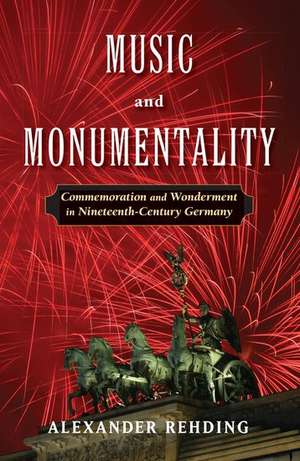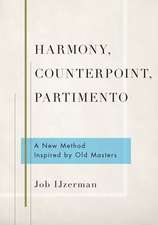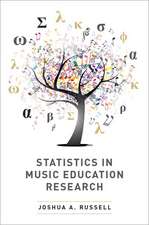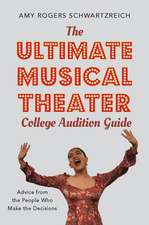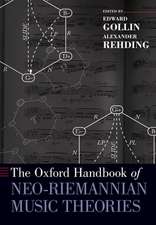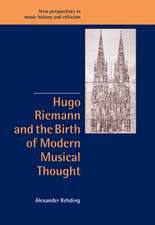Music and Monumentality: Commemoration and Wonderment in Nineteenth-Century Germany
Autor Alexander Rehdingen Limba Engleză Paperback – 26 ian 2017
| Toate formatele și edițiile | Preț | Express |
|---|---|---|
| Paperback (1) | 231.27 lei 31-37 zile | |
| Oxford University Press – 26 ian 2017 | 231.27 lei 31-37 zile | |
| Hardback (1) | 445.14 lei 31-37 zile | |
| Oxford University Press – 20 aug 2009 | 445.14 lei 31-37 zile |
Preț: 231.27 lei
Preț vechi: 263.75 lei
-12% Nou
Puncte Express: 347
Preț estimativ în valută:
44.25€ • 46.32$ • 36.83£
44.25€ • 46.32$ • 36.83£
Carte tipărită la comandă
Livrare economică 19-25 martie
Preluare comenzi: 021 569.72.76
Specificații
ISBN-13: 9780190656133
ISBN-10: 0190656131
Pagini: 320
Dimensiuni: 234 x 155 x 23 mm
Greutate: 0.5 kg
Editura: Oxford University Press
Colecția OUP USA
Locul publicării:New York, United States
ISBN-10: 0190656131
Pagini: 320
Dimensiuni: 234 x 155 x 23 mm
Greutate: 0.5 kg
Editura: Oxford University Press
Colecția OUP USA
Locul publicării:New York, United States
Recenzii
An original and highly stimulating contribution to both musicology and cultural history.
Rehding ranges widely within each chapter, pulling threads from many areas of thought. Recommended.
Prepare to have your assumptions rearranged by Alexander Rehding's brilliantly nimble variations on the monumental in music. Above all, he refuses to treat his subjects as immobilized monoliths ripe for defacement, but rather seeks to liberate the full range of their cultural resonance.
'Monumentality' turns out to be something like the elephant in the room of nineteenth-century musical culture, a topic so obvious but at the same time so huge and potentially disconcerting that musicologists have all but ignored it. Alex Rehding traces the lineaments of this intriguing, elusive cultural beast in a series of brilliant essays illustrating the ways in which histories of composition, canon, memory, nation, and indeed musicology itself participate in a collective project of monumentalization, one whose consequences for the twentieth century we are only beginning to appreciate. Ranging from the Romantic infancy of music journalism to the first triumphs of modern musical edition-making, from Wagner's Gluck revival to Bruckner's entry into 'Walhalla' to Beethoven at the Berlin Wall, this study illuminates the aesthetics and politics of the musical monument in fascinating ways that open up a whole new field of inquiry.
This elegantly written book is not so much a monument to musical monumentality as an archeology of a neglected and half-forgotten concept. With his virtuosic command of historical and theoretical tools, Rehding excavates several sites - some familiar, others obscure - unearthing the complex cultural mechanisms of this deceptively simple aesthetic in order to demonstrate its foundational significance in the formation of German identity. The sounding monument may be an outmoded aesthetic in the twenty-first century; by exploring its history, however, Rehding not only lays bare its past but demonstrates how it still determines our cultural practices today. This is an important book, rich in detail yet broad in scope, and should be widely read.
Rehding ranges widely within each chapter, pulling threads from many areas of thought. Recommended.
Prepare to have your assumptions rearranged by Alexander Rehding's brilliantly nimble variations on the monumental in music. Above all, he refuses to treat his subjects as immobilized monoliths ripe for defacement, but rather seeks to liberate the full range of their cultural resonance.
'Monumentality' turns out to be something like the elephant in the room of nineteenth-century musical culture, a topic so obvious but at the same time so huge and potentially disconcerting that musicologists have all but ignored it. Alex Rehding traces the lineaments of this intriguing, elusive cultural beast in a series of brilliant essays illustrating the ways in which histories of composition, canon, memory, nation, and indeed musicology itself participate in a collective project of monumentalization, one whose consequences for the twentieth century we are only beginning to appreciate. Ranging from the Romantic infancy of music journalism to the first triumphs of modern musical edition-making, from Wagner's Gluck revival to Bruckner's entry into 'Walhalla' to Beethoven at the Berlin Wall, this study illuminates the aesthetics and politics of the musical monument in fascinating ways that open up a whole new field of inquiry.
This elegantly written book is not so much a monument to musical monumentality as an archeology of a neglected and half-forgotten concept. With his virtuosic command of historical and theoretical tools, Rehding excavates several sites - some familiar, others obscure - unearthing the complex cultural mechanisms of this deceptively simple aesthetic in order to demonstrate its foundational significance in the formation of German identity. The sounding monument may be an outmoded aesthetic in the twenty-first century; by exploring its history, however, Rehding not only lays bare its past but demonstrates how it still determines our cultural practices today. This is an important book, rich in detail yet broad in scope, and should be widely read.
Notă biografică
Alexander Rehding is the Fanny Peabody Professor of Music at Harvard University, an affiliate of the Department of Germanic Languages and Literatures, and an associate at the Center for European Studies. His research specializes in nineteenth-century music and in history of music theory. He is author of Hugo Riemann and the Birth of Modern Musical Thought.
